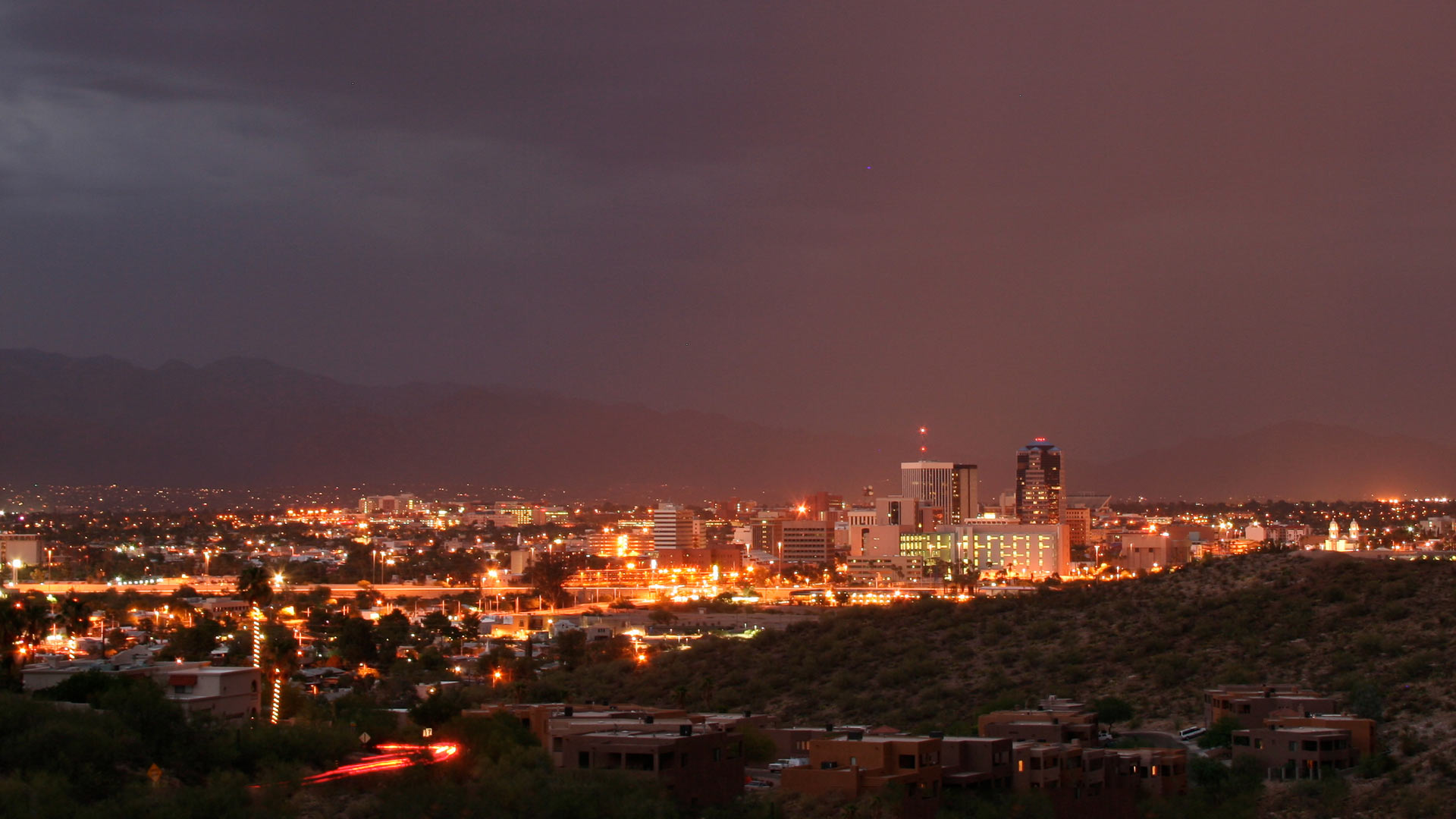 Overlooking the Tucson city skyline at night.
Overlooking the Tucson city skyline at night.
President Donald Trump vowed this week to target immigrant “sanctuary cities” throughout the country, getting the attention of officials in Tucson, which walks a fine line as an “immigrant-welcoming” city.
At stake is about $100 million in federal funds for Tucson. That’s for expenses like transit, community development grants, housing and urban development funds, and veterans vouchers.
Tucson could lose that money if the federal government determines that the city’s self-declared immigrant-friendly status falls under the sanctuary city category.
"We’re sitting here waiting for a definition of what that means. It’s just a term of art," City Councilman Steve Kozachik said.
The City Council voted unanimously in December to define Tucson as an immigrant-welcoming city, a term that wasn’t targeted in Trump’s executive order.
On Thursday, Tucson Police Chief Chris Magnus signed a letter from various law enforcement agencies to Homeland Security Secretary John Kelly saying the term “sanctuary city” is too broad.
“The term often sweeps in localities that engage in well-established community policing practices or follow federal court decisions that have found federal immigration detainers violate the constitution," the letter states.
It’s incumbent on Trump, now that he’s laid this out there and thrown down the gauntlet, to turn around to Congress and specifically define it so cities likes us can know whether or not we’re captured in this thing," Kozachik said.
Councilwoman Regina Romero said the city should prepare for a fight in court.
"We’re not alone. We’re going to see if the possibility of going to the courts and doing an injunction before President Trump and his administration can act on our funding - and so before we start worrying about our funds, I think we need that we put in a good fight," Romero said. Tucson city attorney Mike Rankin argued that the city’s police force rules complies with federal immigrant rules to share information so the city doesn’t fall under Trump’s threat.
"To the extent the Executive Order refers to 'sanctuary jurisdictions,' it refers to jurisdictions that 'willfully refuse to comply with 8 USC 1373,' which is a provision in federal code regarding the sharing of information with federal immigration authorities," Rankin wrote in an emailed statement to the Fronteras Desk.
"The City of Tucson's policies relating to immigration, including the Tucson Police Department's General Orders, comply with 8 USC 1373, and they also comply with other federal immigration laws and federal constitutional requirements," Rankin said. "So, with respect to the Executive Order, the City of Tucson is not a jurisdiction that should face the threatened withholding of federal funds as described in the Order."
The number of cities defined as "sanctuary cities" ranges wildly from 160 cities to more than 360 counties, by different estimates.
By Thursday afternoon, Miami-Dade County in Florida rescinded its sanctuary status when its mayor ordered the county jails to comply with federal immigration detention requests.
"Right decision. Strong!" Tweeted the president.


By submitting your comments, you hereby give AZPM the right to post your comments and potentially use them in any other form of media operated by this institution.